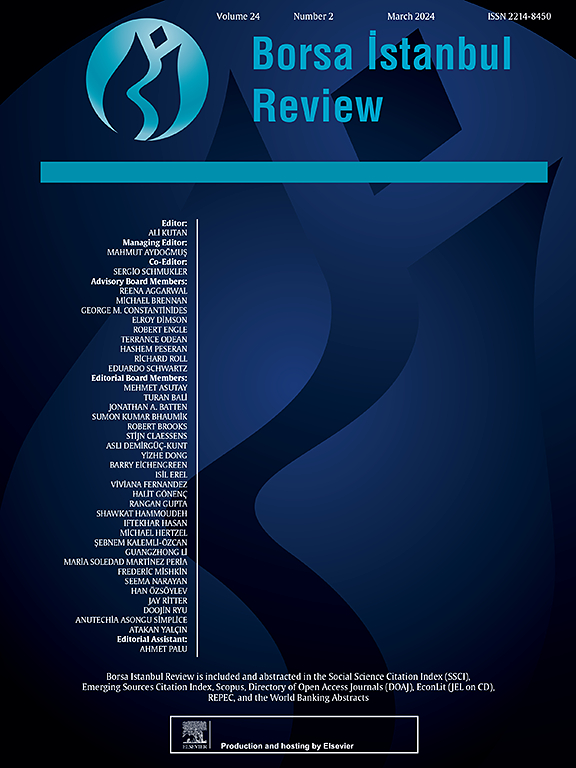Regulating CEO compensation: A remedy for corporate misconducts in China's state-owned enterprises
IF 6.3
2区 经济学
Q1 BUSINESS, FINANCE
引用次数: 0
Abstract
The growing compensation disparity between CEOs and employees has become a global concern, underscoring the need for regulatory measures to ensure fair and equitable remuneration practices. Drawing insights from China's government regulation of CEO compensation (GRCC) for state-owned enterprises (SOEs), this study investigates the impact of GRCC on fraudulent activities within SOEs. Using data from China's A-share listed firms between 2010 and 2022 and applying logit regression models within a difference-in-difference framework, our empirical findings show a significant reduction in fraud following the implementation of GRCC. Additionally, the effect of GRCC is more pronounced in local SOEs compared to their central counterparts. Channel analysis reveals that GRCC promotes CEO political promotion, improves the quality of internal controls, and alleviates financial constraints within firms, which collectively reduce fraudulent activities. The results remain robust across various endogeneity tests, parallel trend assumptions, propensity score matching, placebo tests and alternative variable measurements.
规范CEO薪酬:中国国有企业不当行为的补救措施
首席执行官和雇员之间日益扩大的薪酬差距已成为全球关注的问题,这突出表明需要采取监管措施,以确保公平和公平的薪酬做法。借鉴中国政府对国有企业CEO薪酬(GRCC)的监管,本研究探讨了GRCC对国有企业内部欺诈行为的影响。利用2010年至2022年中国a股上市公司的数据,并在差中差框架内应用logit回归模型,我们的实证研究结果表明,实施GRCC后,欺诈行为显著减少。此外,与中央国企相比,地方国企的GRCC效应更为明显。渠道分析表明,GRCC促进了CEO的政治晋升,提高了内部控制的质量,缓解了公司内部的财务约束,共同减少了欺诈行为。在各种内生性检验、平行趋势假设、倾向评分匹配、安慰剂检验和替代变量测量中,结果仍然稳健。
本文章由计算机程序翻译,如有差异,请以英文原文为准。
求助全文
约1分钟内获得全文
求助全文
来源期刊

Borsa Istanbul Review
Multiple-
CiteScore
7.60
自引率
3.80%
发文量
130
审稿时长
26 days
期刊介绍:
Peer Review under the responsibility of Borsa İstanbul Anonim Sirketi. Borsa İstanbul Review provides a scholarly platform for empirical financial studies including but not limited to financial markets and institutions, financial economics, investor behavior, financial centers and market structures, corporate finance, recent economic and financial trends. Micro and macro data applications and comparative studies are welcome. Country coverage includes advanced, emerging and developing economies. In particular, we would like to publish empirical papers with significant policy implications and encourage submissions in the following areas: Research Topics: • Investments and Portfolio Management • Behavioral Finance • Financial Markets and Institutions • Market Microstructure • Islamic Finance • Financial Risk Management • Valuation • Capital Markets Governance • Financial Regulations
 求助内容:
求助内容: 应助结果提醒方式:
应助结果提醒方式:


